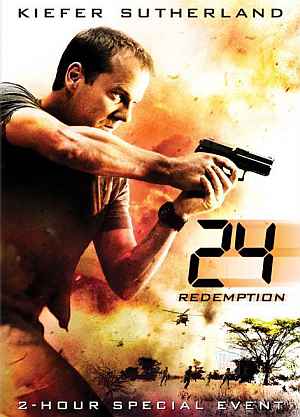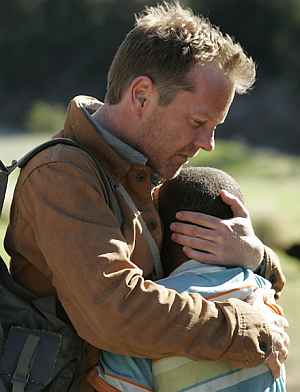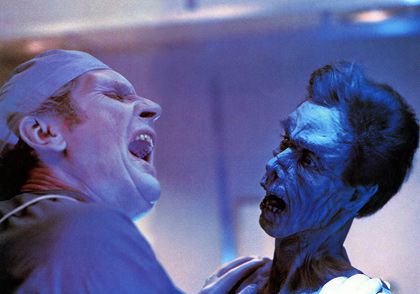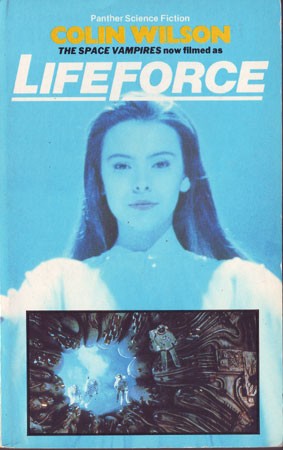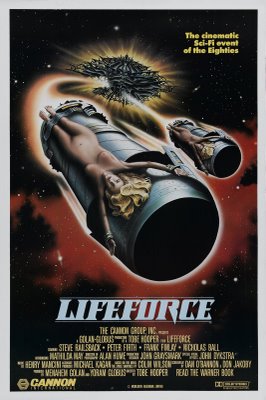Random thoughts from nowhere in particular
Alien vs… We were watching Alien vs. Predator the other day – review to follow in due course, but basically: “don’t bother” – and noticed the presence of Reiko Aylesworth, who plays Michelle Dessler on 24. In lieu of anything the movie provided, we entertained ourselves by speculating on how much more fun it would be if the next movie was Jack Bauer vs. Predator. Or, as an alternative, get Jennifer Garner back in the show that made her a star, and go for Alien vs. Alias.
The Last Waltz. Been on a bit of a classical music kick over the past week, thanks to, of all things, Die Hard, which got me pulling out a bit of the old Ludwig Van and his Ode to Joy. From there, I drifted across to Johann Strauss – or rather, both of them, father and son, though the former is probably better, in my entirely uninformed opinion. But has any composer ever written songs that are quite as hummable? Obviously, everyone knows The Blue Danube, but there’s a lot more than that. 150 years later, songs such as Rosen aus dem Süden (son) and Geschichten aus dem Wienerwald (father) are as infectious as anthrax.
The curious appeal of Deal or No Deal. I’d probably do OK on most US game shows, only up until, there was a question on presidents or American football: even something known by every native, like “Who did Joe Namath play for?” would trip me up badly. Which may explain the appeal of Deal or No Deal, as it requires no knowledge or special skill beyond basic probability. It’s fascinating to see the decision making at work, not least because the offer made to the contestant is always below the expected statistical value. They’re being asked to exchange a certain amount of cash for certainty. Play the flash version here.
Where did the week go? I took three days off work, which combined with the Thanksgiving break, means I have had nine days off – my longest break, outside of self- or un-employment, since coming to America. It went past in a flash. I do feel somewhat accomplished, having done a lot of work on v2.0 of the Trash City beads site [in serious need of a re-vamp!], but still… However, the Tivo has largely been emptied, and I have eaten more honey-baked ham than is good for me – something of a Thanksgiving tradition – so that’s good.
Snowbird place like home. Winter in Arizona is plagued by an infestation of visitors from other, usually northerly places – the snowbirds – who can’t hack the cold back home, so bail for here (or Florida), during the months of the year when it’s pleasant to live in this state. They clog up the restaurants and are unaware of the fact than in Arizona, speed-limits are only a general guideline. The only comfort is they’ll be gone again as soon as the mercury hits 100.
Speaking of speed-limits. The state has now installed a lot of speed cameras on the highways here. This is supposedly a safety measure, but is far more a case of them milking an easy cash cow, at $150 per flash or thereabouts. I also note that the national 55 mph limit was enacted by Congress not in reaction to safety concerns, but due to the 1973 oil crisis, to save gas. The concept of a singular speed limit is nonsensical: what’s “safe” in rush hour traffic is totally different from what’s safe on an open freeway at 3am on Monday morning.
Eight more years… Finally, Thanksgiving also marked the eighth anniversary of me coming out to America as a permanent resident. Eight years which, incidentally, had always been under a President named Bush, up until Obama’s historic win. Not that I got to vote, of course – I cling onto my British citizenship with tenacity, and as a potential bolt-hole, just in case America turns into the Marxist dictatorship feared by Chris’s sister [I blame talk radio]. His victory was inevitable after the financial implosion, a dire crisis unlike anything I’ve lived through since becoming an adult. I guess the only thing even slightly comparable was the 1972 miner’s strike in Britain which led to nationwide blackouts and a compulsory three-day week. If Obama can fix the current situation by 2012, re-election seems certain.
